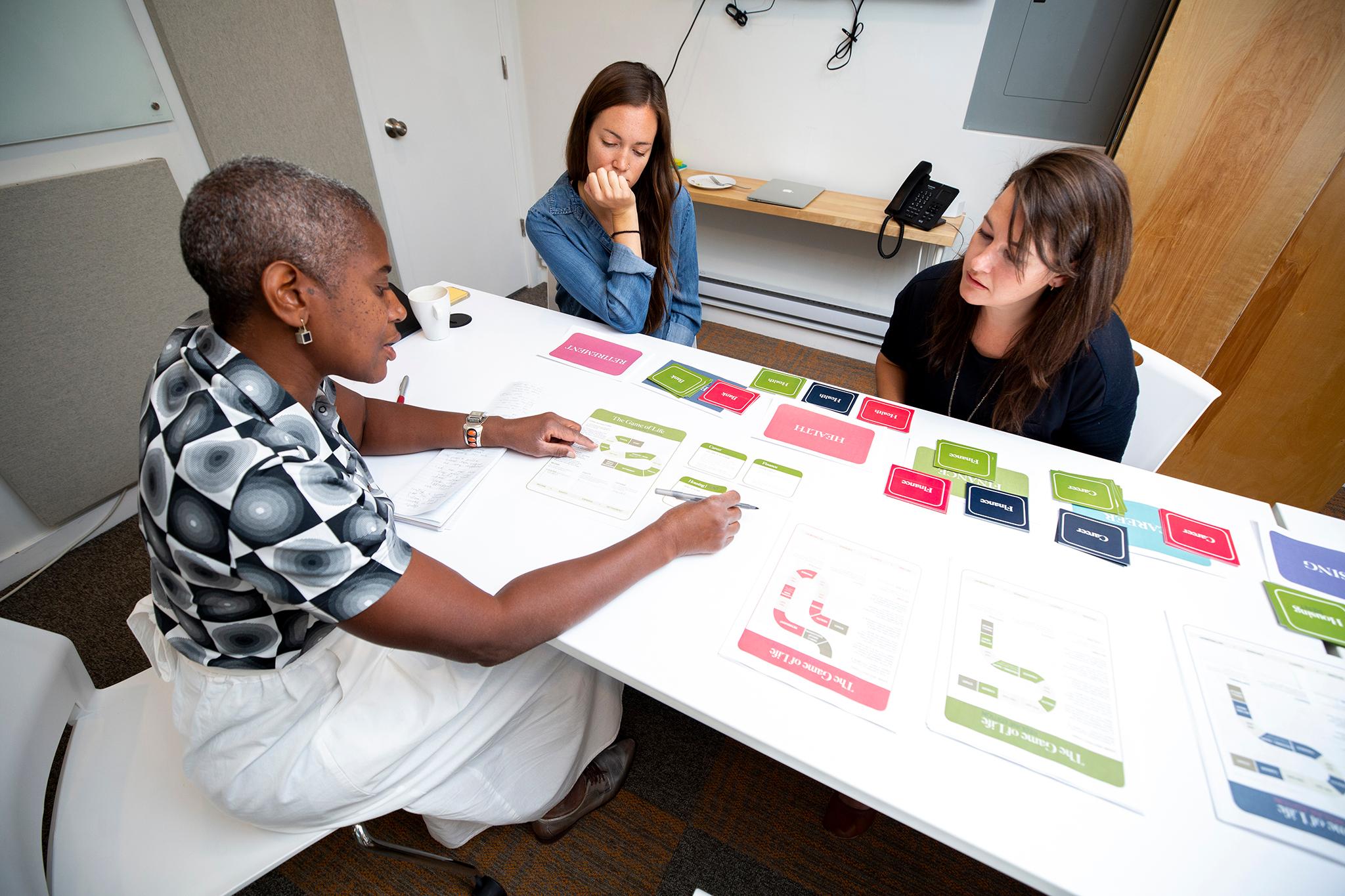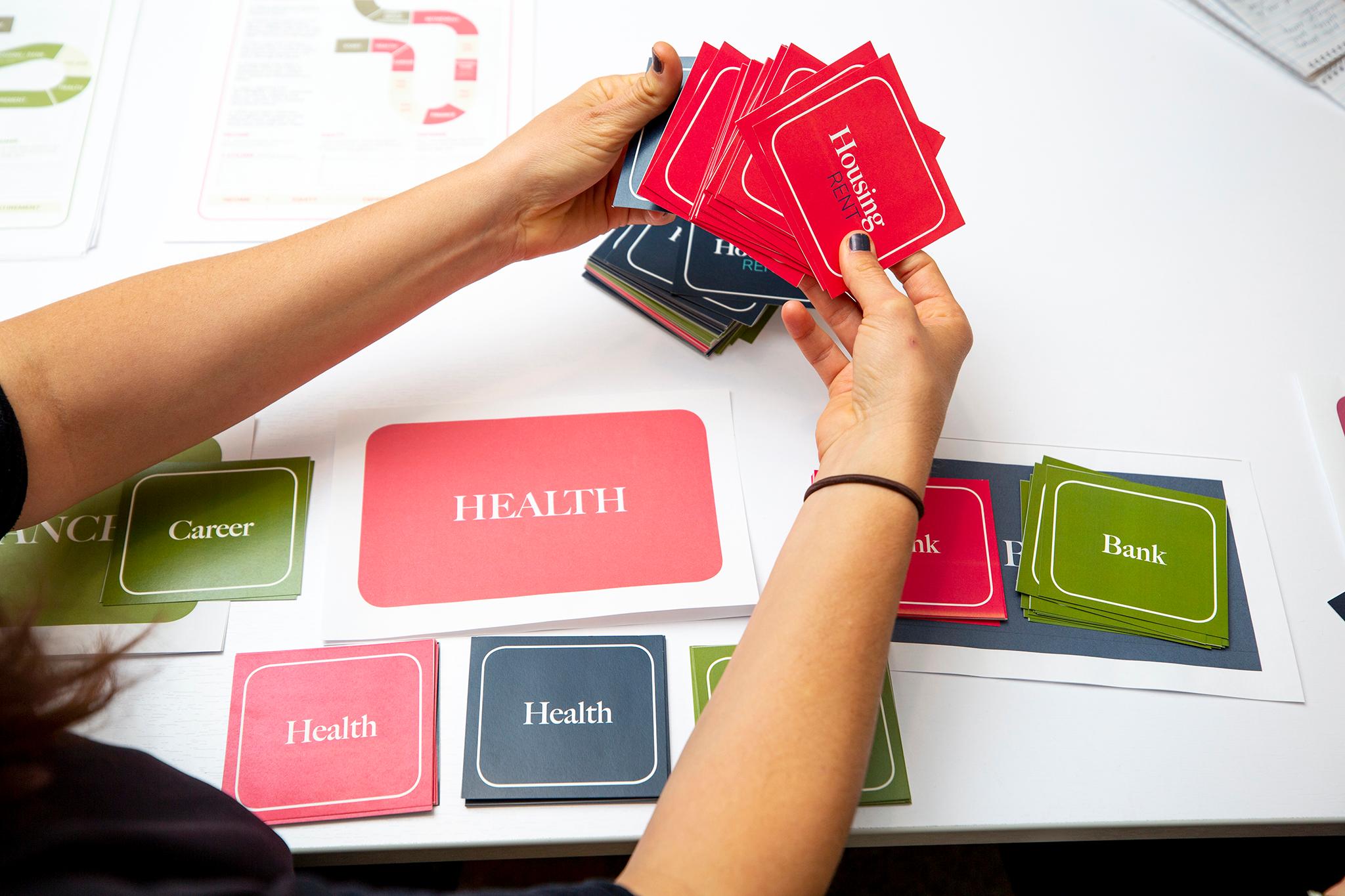She didn't hide that the game was rigged.
I played Dee Dee DeVuyst's "Game of Life: Redline Edition" anyway. For the conversation.
DeVuyst, who trained as an architect and works with the architecture and urban design nonprofit Radian helping to amplify the voices of neighborhoods in conversations about development, created the game for a presentation this summer at the Department of Public Health and Environment's Equity Forum.
The forum brought people from nonprofits and government together to learn from each other about addressing injustice in housing, education, criminal justice and transportation. All of that stuff was all on the board -- actually a room of tables in which the players themselves were the pieces.
"Although it's called a game, it's really an experience or an activity that builds empathy," DeVuyst said. "It gives people another perspective."

I played at one table in a conference room at Radian's Five Points offices. DeVuyst designated me a green player, instead of blue or pink. In a real game, the colors would be picked at random.
I started on the career square, pulling this green card:
"You are a veteran. As a veteran, certain developments waive the down payment and offer low interest rates for buying a home. Unfortunately they are using discriminatory FHA guidelines and you don't qualify."
I'm instructed to note on my score sheet that I have to pay a one-time fee of $40,000.
Fine.

As I move from square to square pulling green cards, I'm denied a chance to buy a home and start paying rent.
I collect $20,000 in salary every time I pass through a payday square. Until my poor bus service makes me late too often and I am fired. When the game ends, I tally my earnings against my expenses and contemplate how I will get by on $15,000 in savings and no equity in a home upon retirement.
As you may have guessed by now, green players are experiencing life as African-Americans. Blue and pink players end up with different tallies, and all players get a chance to talk about why at the end of the game. It's a more nuanced version of the privilege walk.
DeVuyst was inspired by and pulled some of her scenarios from "The Color of Law: A Forgotten History of How Our Government Segregated America," former New York Times columnist Richard Rothstein's 2017 study of the legacy of redlining and other government policies that ensured whites had access to benefits blacks and other minorities were denied.
For the forum, DeVuyst brought in Enterprise Community Partners, a national nonprofit with Denver offices that focuses on affordable housing and equity, to lead a discussion after a round of her game. Enterprise created Denver's Undesign the Redline, an exhibit on the federal government's practice of redlining, or designating neighborhoods that were predominately minority or immigrant as risky places in which to make home loans. Researchers have shown that because of a history of private and public non-investment, the redlined neighborhoods of the past became today's areas where residents have low incomes and savings, poor access to health care and reliable transportation, and high poverty and unemployment.
"This is a systemic problem that was intentionally imposed," DeVuyst said. "It really makes you reflect on, if the government was responsible, what are the next steps? Is it the government's responsibility to remediate that? It's a good conversation for us to be having right now."
DeVuyst is also interested in conversations about refining "Game of Life: Redline Edition." Email her at [email protected] about having her facilitate a round at your organization, company or school.













